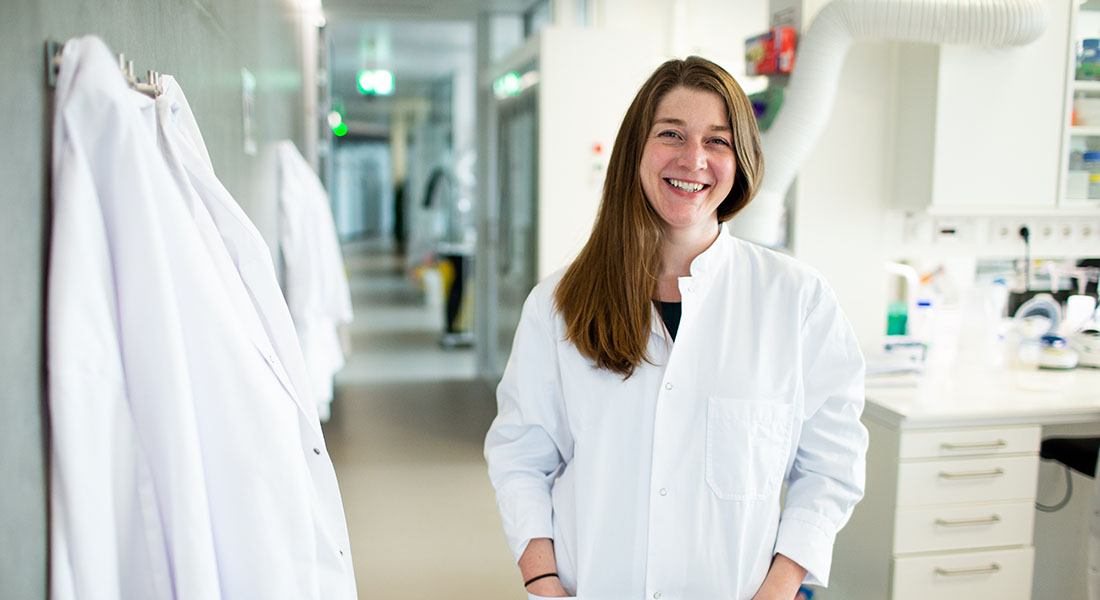Assistant Professor Trisha Grevengoed to launch group at BMI to unravel the cardiovascular benefits of omega-3 fatty acids
The Novo Nordisk Foundation awards Assistant Professor Trisha Grevengoed with a DKK 10M Hallas-Møller Emerging Investigator Award. While remaining at the University of Copenhagen, she now transitions from the Novo Nordisk Foundation Center for Basic Metabolic Research (CBMR) to the Department of Biomedical Sciences (BMI) to establish a research group focused on uncovering new insights into the role of omega-3 fatty acids on cardiovascular health and disease.

After six years at the Novo Nordisk Foundation Center for Basic Metabolic Research (CBMR) – first as a Postdoctoral Fellow, then as Assistant Professor – Trisha Grevengoed will now launch her own group at the University of Copenhagen's Department of Biomedical Sciences (BMI).
The opportunity arrives after securing a DKK 10M Hallas-Møller Emerging Investigator grant from the Novo Nordisk Foundation, which supports new group leaders investigating the human organism and/or basal mechanisms underlying health and disease.
"It’s a mixture of disbelief and total excitement. It’s the dream to get a big starting grant to start a group and do research that I really want to do,” says Trisha Grevengoed.
Omega-3 fatty acids help the heart – but how?
While earning a PhD from the University of North Carolina at Chapel Hill, Trisha focused on lipid metabolism in the heart. In 2015, she joined CBMR's the Gillum Group, whose focus is identifying the receptors and cellular targets of hormones and metabolites through which they exert their beneficial or detrimental effects. While at CBMR, she has studied a novel class of lipids that can act as signaling molecules to regulate glucose metabolism as well as alter the function of bile to regulate dietary lipid absorption.
At BMI – where there is a strong focus on cardiac health – Trisha Grevengoed will combine her PhD work on cardiac metabolism with her recent work on bioactive lipids to focus her research on omega-3 fatty acids to better understand how these lipids help to lower blood triglycerides and help prevent cardiovascular disease events, such as heart attack or stroke.
“There is still a lot we don’t know about omega-3 fatty acids and how they work. I propose that previously unstudied molecules made from omega-3 fatty acids can directly lower blood triglycerides and inflammation and limit the progression of heart disease. I will test this hypothesis by developing new models with altered amounts of these molecules in order to study their importance in human health. When completed, I hope this work will be able to help alleviate heart disease and diminish its comorbidities to improve the quality of life for many people,” says Trisha Grevengoed.
